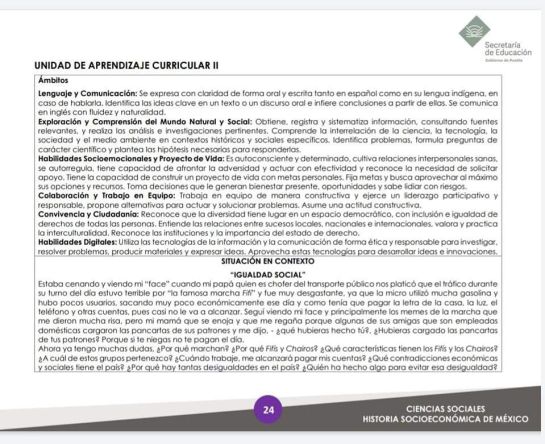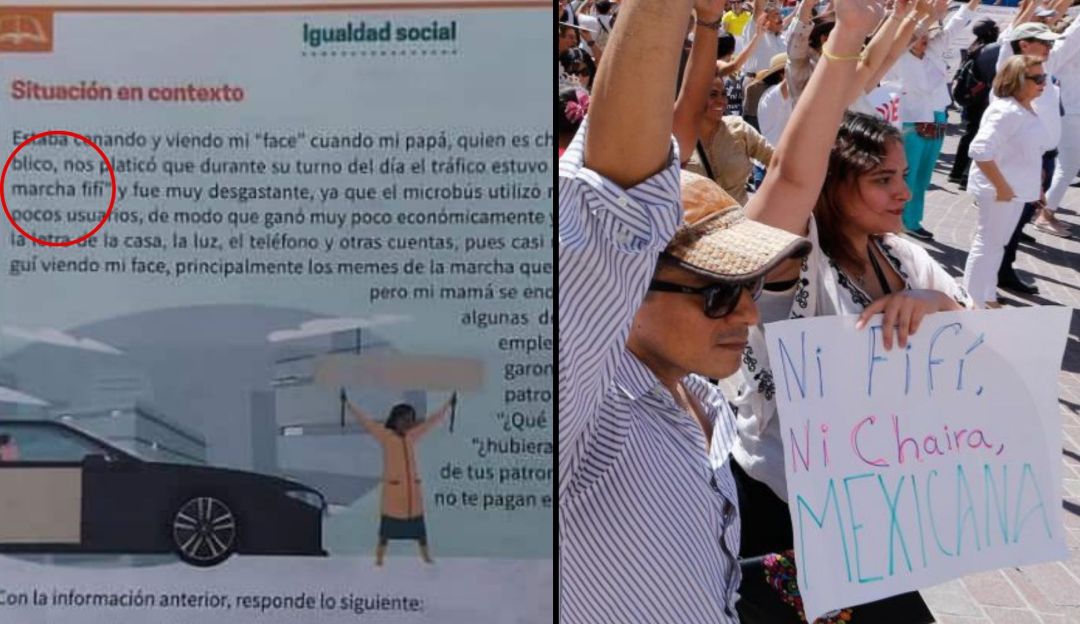PUEBLA. The Secretary of Education of Puebla, Melitón Lozano Pérez, defended the use of the terms “fifís” and “chairos” in textbooks
FIFÍS VS. CHAIROS ?; THIS IS THE HISTORY CLASS
The fifth-semester program of the disciplinary field of Social Sciences deals with the social and economic phenomena that have occurred in Mexico and in the world from the second half of the 20th century to date, for which it reaches the discussion of fifís against chairos.
- The subject is organized into 3 Curricular Learning Units (UAC ), which are thematic and follow a chronological order.
- In unit II it raises the topic Social equality with the following objective:
- The students will explain the socioeconomic conditions that developed in the last decades of the 20th century in Mexico: the creation of FOBAPROA, the armed uprising of the EZLN, and the economic circumstances by region that led to inequality and exclusion of the population.
- It raises the following situation in a context that high school teachers have indicated as “indoctrination” that appears in the History Program and is apparently repeated in the high school textbook and says:

The Secretary of Education of Puebla, Melitón Lozano Pérez, defended the use of the terms “fifís” and “chairos” in textbooks, to explain “social equality” to high school students.
The official said that those words are not included in free texts, but in one that was prepared by a private publisher, but the fragment as such stands out on the official page of the state’s Secretary of Education.

On page 24 of the Social Sciences Program, Socioeconomic History of Mexico, for the fifth semester of high school, a situation appears “in context” to understand “social equality”, and talks about the impact that “the fifí march” had for a public transport driver and for domestic workers who were forced by their employers to carry banners.
The controversial exercise is as follows: “I was having dinner and watching my ‘face’ when my father, who is a public transport driver, told us that the traffic during his shift of the day was terrible because of“ the famous Fifi march ”and it was very exhausting, since the bus used a lot of gasoline and there were few users, getting very little financially that day, and since he had to pay the house bill, electricity, telephone, and other bills because he will hardly be able to afford it.
“I kept seeing my face and mainly the memes of the march that made me laugh a lot, but my mother who gets angry and scolds me because some of her friends who are domestic workers carried the banners of their employers and said: What would you have? Because if you refuse, they don’t pay you for the day.
“Now I already have many doubts. Why are they marching? Why Fifís and Chairos? What are the characteristics of the Fifís and the Chairos? Which of these groups do I belong to? When I work, will I pay my bills? What economic and social contradictions does the country have? Why are there so many inequalities in the country? Who has done something to avoid this inequality?
Lozano rejected that with the use of the terms “fifí” and “chairos” an indoctrination towards young people is sought; on the contrary, he said, it is intended to generate critical positions among students with “real” situations, which lead them “to reflection.”
He affirmed that these expressions are linked to the reality that young people live, and rejected that judgments of truth or value are made around them. Rather, it makes use of “current tools” for teaching, he added.
For his part, the senator for Veracruz Julen Rementería del Puerto published a message on his social networks where he accuses the government of Puebla of being “indoctrinating” young people through schools and their study programs.
“Srio. @emoctezumab I demand that you respect the law and punish those responsible, ”he claimed.

Other users of social networks considered that the use of these qualifiers in a textbook approved by the Secretary of Education of Puebla for the baccalaureate degree generates division and resentment among Mexicans.

Source: wradio.com.mx, proceso.com.mx





